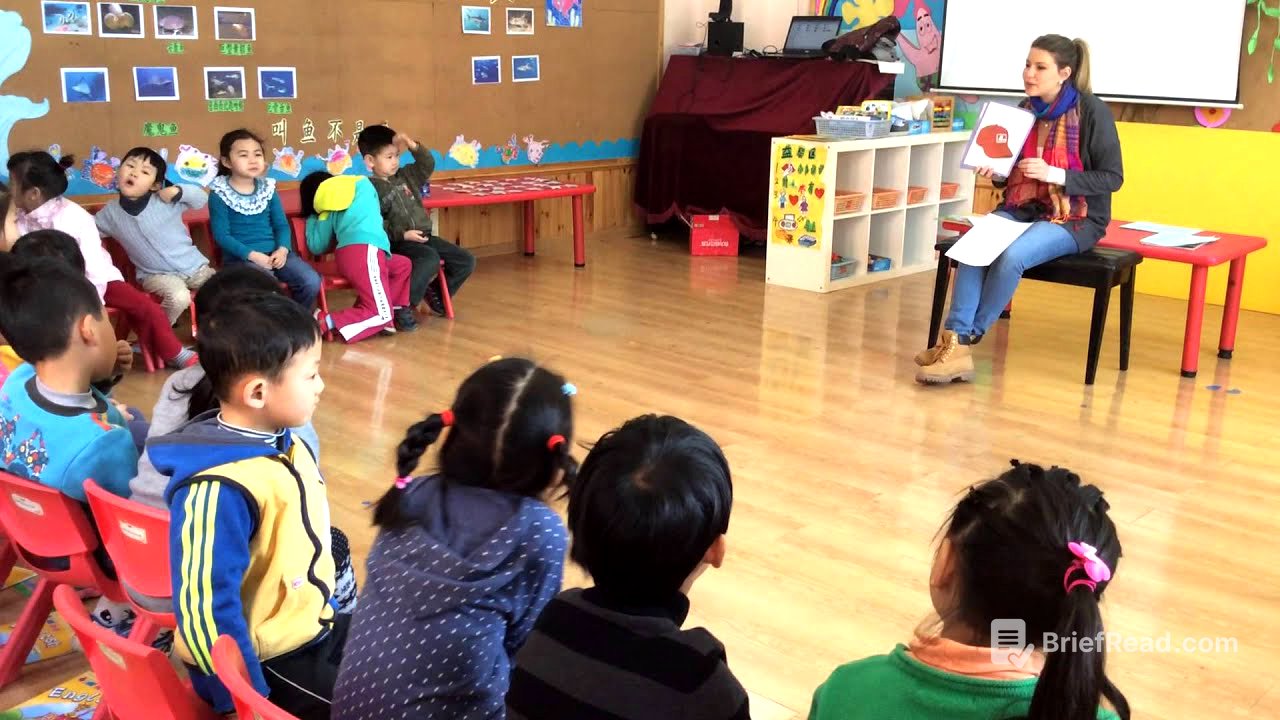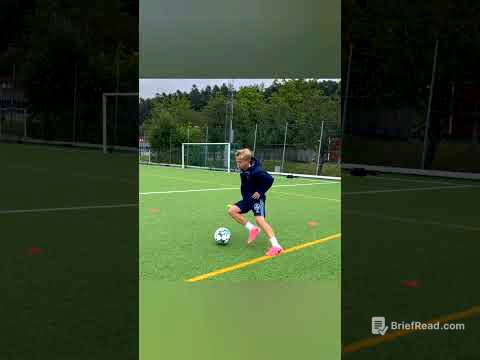TLDR;
This video captures a lively English lesson for young children, filled with interactive activities, songs, and vocabulary learning. The lesson covers days of the week, months, seasons, weather, clothing, and daily routines. It includes singing familiar tunes, practicing conversational English, reviewing past vocabulary, introducing new words related to seasons, and playing engaging games like the Alphabet Game and the Radio Game to reinforce learning.
- Interactive learning environment with songs and games.
- Focus on vocabulary related to seasons, weather, and daily routines.
- Reinforcement through review and application.
Greeting and Introduction [0:01]
The teacher starts by greeting the children and reviewing basic concepts such as the day of the week, the month, and the season. The children actively participate by answering questions about the current day, the upcoming day, and the previous day, as well as identifying the current month and season. They also discuss appropriate clothing for the spring season.
Weather and Daily Routines [1:32]
The lesson continues with a discussion about the weather outside, with the children noting that it is sunny. They differentiate between hot, warm, cool, and cold, and identify the time of day as daytime. The teacher then transitions into a conversation about daily routines, asking the children what they eat for breakfast, lunch, and dinner.
Singing Songs [2:43]
The class engages in singing songs, including "I Am The Music Man" and "She'll Be Coming Round the Mountain." The children actively participate, singing along and enjoying the musical activities.
Daily Conversation Practice [8:28]
The teacher initiates a daily conversation practice, asking individual students questions such as their name, where they are from, their favorite fruit, food, and sport. Students like Leslie, Nico, Quter, and William participate by answering the questions.
February Review [11:15]
The class reviews vocabulary related to February, including words like "windy," "dry," "gloves," "shorts," "swimming costume," "rain," "snow," "boots," "cap," "fog," "sandals," "raincoat," and "cloud." The teacher asks questions to reinforce understanding and encourages the children to relate the vocabulary to different seasons.
Alphabet Game [16:12]
The children are divided into two teams, Star and Heart, to play the Alphabet Game. The teacher chooses a word, and one member from each team has to write it down. The first word is "dry," and Leo from the Star team and Candy from the Heart team participate. The second word is "cloud," and Helen from the Heart team and one more boy participate. The Heart team wins the game.
New Vocabulary Introduction [23:34]
The teacher introduces 12 new words: "apple," "fireworks," "freezing," "fruit," "hail," "Halloween," "humid," "ice," "rain," "sand," "soup," and "sun." Each word is explained, and the children repeat them to practice pronunciation.
Seasons Chart Activity [26:00]
The teacher presents a seasons chart with the four seasons: winter, spring, summer, and autumn. The children are tasked with matching the new vocabulary words to the appropriate season. For example, "apples" are associated with autumn, "fireworks" with summer, and "freezing" with winter.
Student Book: Unit One [32:56]
The class transitions to the student book, focusing on Unit One. They review vocabulary related to body parts, such as "head," "feet," "hand," "toe," "finger," "knee," and "shoulder." The teacher leads the children through exercises involving clapping, stamping, and touching different body parts.
Radio Game [36:38]
The lesson concludes with the Radio Game, where the teacher gives instructions such as "stop," "eject," "slow motion," "jump up and down," "pull a funny face," "rewind," and "forward." The children follow the instructions, engaging in physical activities and having fun while reinforcing their understanding of the commands.





![Python for Beginners – Full Course [Programming Tutorial]](https://wm-img.halpindev.com/p-briefread_c-10_b-10/urlb/aHR0cDovL2ltZy55b3V0dWJlLmNvbS92aS9lV1JmaFpVenJBYy9ocWRlZmF1bHQuanBn.jpg)



